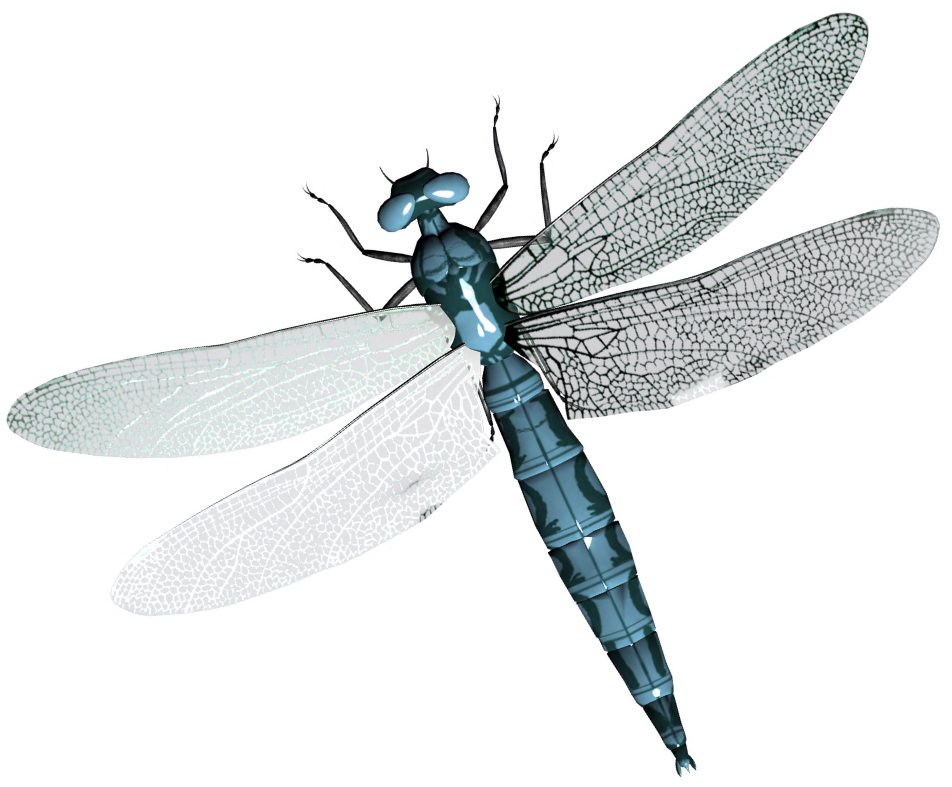
This image has format transparent PNG with resolution 952x787.
You can download this image in best resolution from this page and use it for design and web design.
Dragonfly PNG with transparent background you can download for free, just click on download button.
A dragonfly is an insect belonging to the order Odonata, infraorder Anisoptera. Adult dragonflies are characterized by large multifaceted eyes, two pairs of strong transparent wings, sometimes with coloured patches and an elongated body. Dragonflies can be mistaken for the related group, damselflies (Zygoptera), which are similar in structure, though usually lighter in build; however, the wings of most dragonflies are held flat and away from the body, while damselflies hold the wings folded at rest, along or above the abdomen. Dragonflies are agile fliers, while damselflies have a weaker, fluttery flight. Many dragonflies have brilliant iridescent or metallic colours produced by structural coloration, making them conspicuous in flight. An adult dragonfly’s compound eye has nearly 24,000 ommatidia.
Fossils of very large dragonfly ancestors in the Protodonata are found from 325 million years ago (Mya) in Upper Carboniferous rocks; these had wingspans up to about 750 mm (30 in). About 3000 species of Anisoptera are in the world today. Most are tropical, with fewer species in temperate regions.
Dragonflies are predators, both in their aquatic larval stage, when they are known as nymphs or naiads, and as adults. Several years of their lives are spent as nymphs living in fresh water; the adults may be on the wing for just a few days or weeks. They are fast, agile fliers, sometimes migrating across oceans, and are often found near water. They have a uniquely complex mode of reproduction involving indirect insemination, delayed fertilization, and sperm competition. During mating, the male grasps the female at the back of the head or on the prothorax, and the female curls her abdomen under her body to pick up sperm from the male's secondary genitalia at the front of his abdomen, forming the "heart" or "wheel" posture.
In this clipart you can download free PNG images: Dragonfly PNG images free download